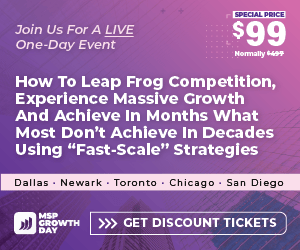Earlier this year, the Illinois Supreme Court ruled that the fast-food chain White Castle violated the state’s Biometric Information Privacy Act by requiring employees to use their fingerprints to access company systems without their consent. One employee took issue, lawyered up and is now leading a class action lawsuit that is estimated may cost the company $17 billion.
I don’t know all the details, but my guess is that some well-meaning IT company or person sold the executive team on the idea of using this technology to increase security, lower costs, improve efficiency, etc. Someone trusted them to know what they were doing and the recommendations they made, and now they’re facing a complete and total disaster.
One of Trump’s biggest mistakes was trusting flip-flop Fauci with the pandemic response, who proceeded to lie and make disastrous recommendations on how to respond to the virus that were catastrophic for the US. I’m certain this misplaced trust was one of the contributing factors to his losing the election.
Thousands of investors trusted Sam Bankman-Fried, Bernie Madoff and Elizabeth Holmes (Theranos) with their money, only to discover these people were complete frauds. Many trusted Silicon Valley Bank, First Republic Bank and Signature Bank with their money, only to discover these banks were grossly mismanaged, resulting in their collapse.
In business, and all throughout our lives, we all have to make decisions about who we can trust and whose advice to follow. Pick the wrong person and they can impart serious harm. That’s why you must have litmus tests in place to determine who you CAN trust that are designed to reveal the true competence and character of the person you’re about to put your faith in.
Far too many have misplaced their trust in people and companies, based on frivolous, emotional, irrational reasons vs. competence and track record. Most people do not take the time to carefully investigate the company or individual they are about to trust with critical aspects of their business, finances and lives.

As a marketer, we must know this and be careful about attempting to solely influence people by our résumé. Yes, that’s the logical and honest way to demonstrate to the marketplace that you can (should) be trusted. However, people make wildly irrational decisions about who to trust based on emotional factors, such as likability, celebrity and familiarity. If you want to get the maximum results from your marketing and sales efforts, you must incorporate trust-based marketing as we teach it, which is not entirely based on your qualifications.
That said, as a BUYER or CONSUMER, you have to be very, very careful that you don’t make decisions about who to trust in the same way. You MUST stress-test the vendors, consultants and employees you are entrusting with critical aspects of your life, finances and business, and not allow yourself to be seduced by “marketing” or the desire to abdicate responsibility and free yourself from doing your homework. Many of the investors who lost money in the FTX scandal did so because they didn’t do their own due diligence (despite what they said) and trusted that, because their well-known peers were investing, it was a safe investment.
Had they actually thought about it, why in the heck would you trust an openly drug-using kid who plays video games on conference calls while doing multimillion-dollar deals, dresses like he’s homeless, lives in the Bahamas and has his openly pro-amphetamine, drug-using girlfriend as his partner.
When hiring employees, I don’t just look at their résumé – I look at how they behave in the interview process. Someone who is sloppy, late or inconsistent in any way during the interview process can’t be trusted to be on time, precise, diligent and meticulous in the job. I require to speak to their previous bosses, not just the references they provide.
With vendors, if they can’t follow up with me in an appropriate way when I’m attempting to buy, how can they possibly be trusted to be responsive AFTER I give them money? Another litmus test: Give me the names of at least 3 people I can talk to who have done a similar deal with you in the past. If they can’t produce that, proceed with extreme caution. As Erma Bombeck said, never trust a doctor whose office plants have died.
In the world of consultants, authors and speakers, I’m stunned by how many small business owners foolishly follow the advice of clearly unqualified “gurus” who have NOT done what they are teaching others to do, are NOT running successful businesses and are dispelling advice that is grossly inaccurate and incomplete.
I have always been extremely sensitive to this and have never taught my clients to do something I’ve not done or haven’t done in the past. I’m very clear to them about my lines of expertise, and openly tell prospective clients I’m definitely NOT a “quick fix” to what ails them, but a program based in long-term implementation and hard work. Definitely NOT a welcome message in our microwave-results world, but one that is honest.
I understand why people put trust in those that they shouldn’t: most people do NOT want to indulge in critical thinking and simply want a guru to tell them what to do. As Cavett Robert, founder of the National Speakers Association, once said, “Most people are walking around with their umbilical cord, looking for a place to plug it in.”
Know this as a marketer, salesperson and entrepreneur, but be very, very wary of falling for it yourself.
It’s equally important for your prospects to be able to trust you and your business. That can be the deciding factor when choosing who to sign with. Get 3 ways to eliminate those objections and have them trust you. All the details are here.








